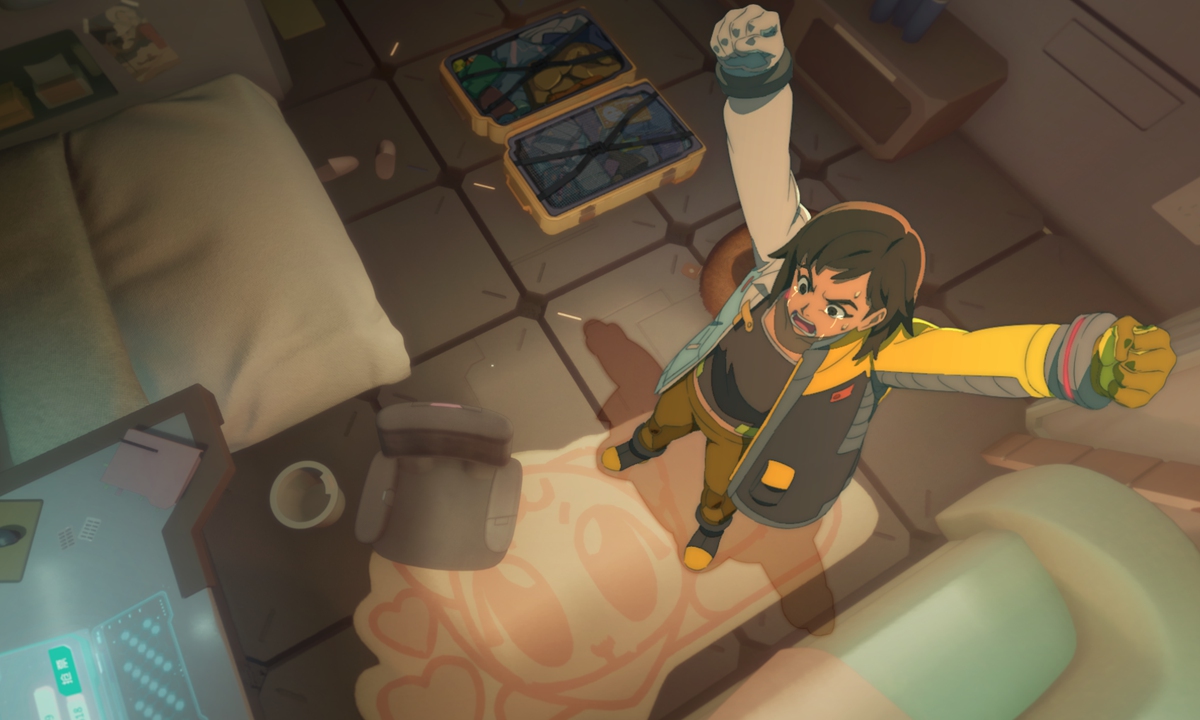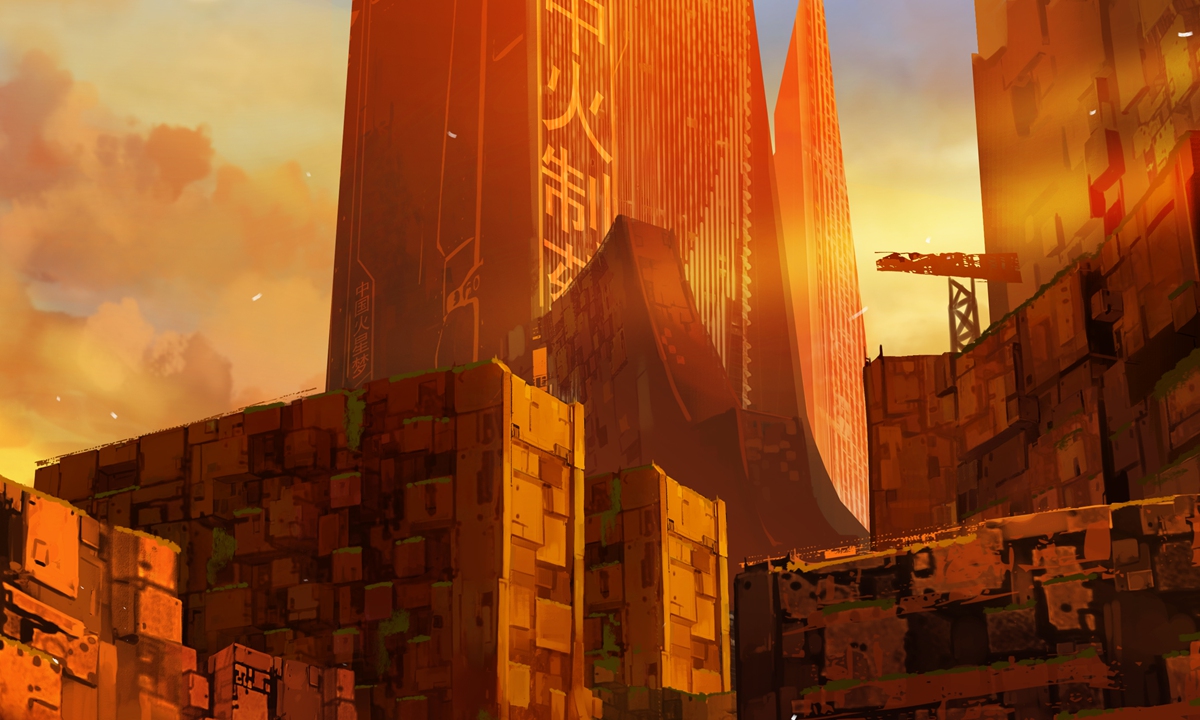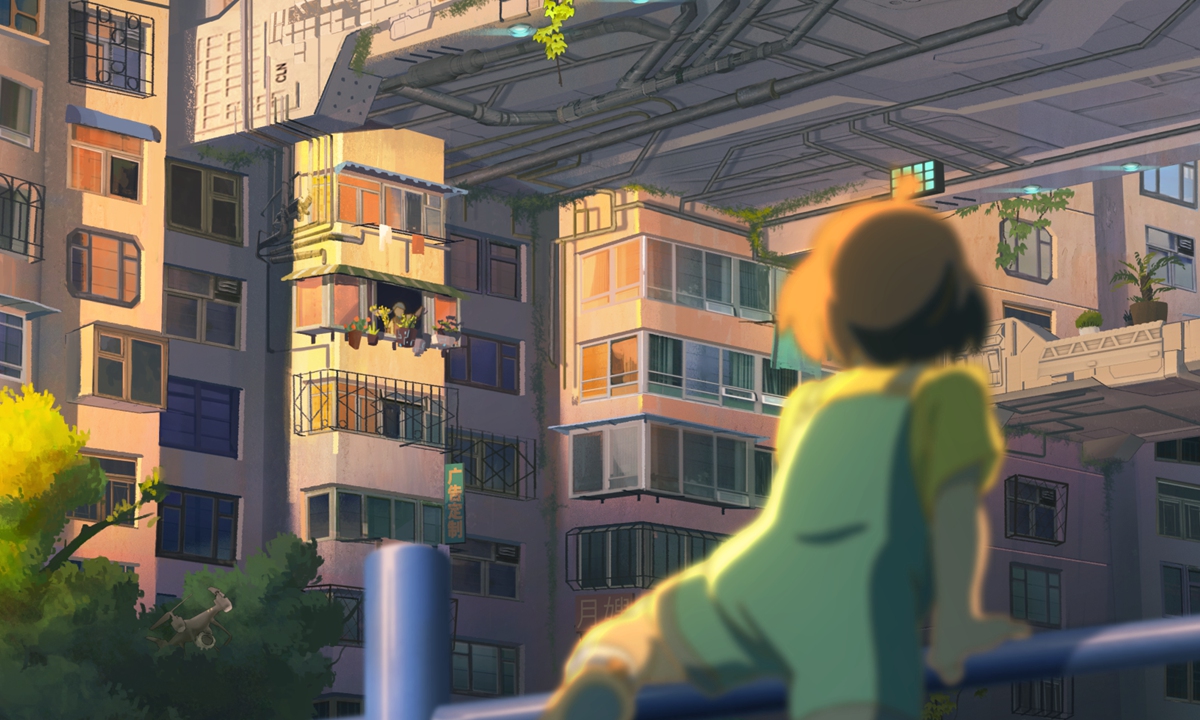
The main character Ying Ying from Capsules: Yinghuo Guitu Photo: Courtesy of Bilibili

Promotional material for Capsules: Yinghuo Guitu Photo: Courtesy of Bilibili

Promotional material for Capsules: Yinghuo Guitu Photo: Courtesy of Bilibili
In 2088, humans step foot on Mars, expanding humanity's horizons and opening up a new field of existence. Meanwhile, the rest of humanity continues living on Earth hundreds of millions of kilometers away, posing a nostalgic touchstone for the people living on the red planet.
This is the background of Chinese original sci-fi animated film
Yinghuo Guitu (lit: the way from Mars to home) directed by Kong Youyang, a young animator from studio Hyper Pace.
It gives free rein to Kong's imagination about human society after rapid developments more than 60 years in the future, while also examining the profound sentimental ties people have with their homes - an important topic for Chinese people that has won the film applause.
The film is an episode from the original Chinese animated series Capsules. Produced by Chinese video platform Bilibili, the series has been compared to the Netflix animated anthology series Love, Death & Robots in reviews on media review site Douban, where it has an 8.8/10 rating.
Another sci-fi animation series adapted from Chinese writer Liu Cixin's fiction The Three-Body Problem, set to debut on Bilibili in December, has also been getting audiences excited.
When talking with the Global Times, Kong praised the production technology and visuals in Chinese sci-fi animation, while also mentioning the high quality of Liu's sci-fi works.
Imagining the future
After more than 60 years of rapid development in science and technology, human beings finally set foot on planets beyond Earth. While this sets up new lands for exploration, Kong said he thinks people in such a setting will still be concerned about their relatives and the places that are important to them back on Earth.
Kong noted that the core of this story is homesickness and the journey back home.
In Kong's futuristic world, looking up at the night sky on Earth, high speed train stations can be seen floating far above the planet. These stations are home to interplanetary high-speed rail shuttles, which are the only way to travel between the Earth and Mars.
Ying Ying, the episode's main character, often watched the construction of the high-speed train station as a child. She deeply misses her mother, who joined the project and so is never at home.
Ying Ying's grandmother accompanies her all the time and takes care of the little girl until she grows into an adult.
Now an adult, Ying Ying decides to follow her dreams by taking the interplanetary high-speed train to Mars, which means bidding goodbye to her family. However, a few years later, she receives a message from her mom saying that her grandmother is on her death bed. Hearing the news, Ying Ying pushes all else aside and heads straight for home, but getting there is more difficult than she imagines.
The scenes of Ying Ying's return journey have stunned many viewers with its mind-opening imaginative takes on space travel and breathtaking visuals.
Kong said that the story is deeply connected to his own childhood. "Working away from my hometown for so many years, I think a lot about returning home, so I wanted to write a related story. I've also been a sci-fi fan since childhood, so naturally I combined these two things to complete the work," Kong told the Global Times.
China's fast developing spaceflight industry is also a source of inspiration for Kong, helping him build his imagined world and polish the details so they make logical sense.
During the year it took to produce the short, Kong and his team overcame worked hard to get every detail right, including adjusting the tiny movements of people holding their phones. He noted that his crew were able to finish the work thanks to help from some friends.
Rising popularity Soon after Capsules being launched on Bilibili, the release date for the animated version of The Three-Body Problem was also confirmed, another sign of how sci-fi has been on the rise in domestic TV and film production.
As a loyal fan of sci-fi, Kong has noticed the genre's rise in popularity in China over the past few years. He noted that animation is a great fit for sci-fi stories as it is a medium that has few constraints when it comes to depicting imaginative or fantastic works.
Kong also noted that animation production technology in China has significantly matured and so stories like Liu's Wandering Earth and The Three-Body Problem can be adapted more quickly.
Chinese tradition and the unique customs of different ethnic groups can also provide inspiration and nutrition to Chinese animators, Kong noted, adding that his studio plans to focus on works about Chinese ethnic groups in Southwest China's Yunnan Province.






